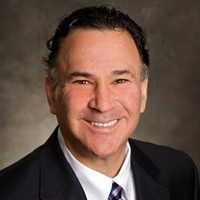Workers are expected to come back in full force in the next few months as COVID-19 restrictions lift across Arizona, and many employers are configuring just how to bring everyone back to the office — or not. One of Arizona’s leading real estate attorneys, Jay Kramer of Fennemore Craig, spoke to Chamber Business News about what to expect as well as advice for employers on how to move forward.
The first challenge will be motivating employees to come back to job sites, Kramer said.
READ ALSO: Phoenix No. 1 in U.S. for year-over-year home price increase

“People haven’t been in the office for awhile and in Phoenix, you can have a 40-minute to one-hour round-trip commute,” said Kramer, a partner with Fennemore, headquartered in Phoenix. “If they come back to the office and just go into a cubicle or close the door of their office, that may not be a reason to come back. So, we’ve got to make it more enjoyable, more of a communal environment conducive to collaboration and socialization as well as providing quiet spaces for people to work.”
Now that the Centers for Disease Control (CDC) has lifted restrictions, Kramer predicts employees will be back in full force by the end of the year.
Kramer offered up his projections for what’s ahead and some advice:
Projections for the short and long term
In the short term, the commercial office market will continue to be bumpy, and Kramer advises remaining flexible right now.
“I think there is going to be an initial knee jerk reaction of, ‘How can we reduce space?’ “ he said. “Most companies will be in a hybrid environment and wonder why they need as much space as they have with only 50 percent of their employees in the office on any given day.”
Longer term, more office space may be required because of the need for more collaborative space, social spaces, quiet spaces, and zoom meeting conference rooms, he said.
“We may actually need as much or additional space because of all these experiential requirements that we’re going to need in order to get people back to working in the office.”
Large headquarters may become more obsolete
Expect large headquarters to go away in favor of regional satellite offices closer to provide more travel convenience for staff, Kramer said. Many offices also will need to be “re-imagined” to make them more attractive to bring staff in for a few days a week or more.
“Instead of having one large corporate office located downtown or at 24th and Camelback, maybe an approach would be to have two or three smaller offices around the Valley, closer to where your employees are located so they do have a place to go where there can be some feeling of camaraderie and community and firm,” Kramer said. “But at same time, limit the commute and limit the exposure to a large number of people.”
Time to think about flexible lease options moving forward
Over the past 14 months, many big businesses were able to carry their mortgages and leases in 2020 because they were able to reduce other expenses associated with running an office by as much as 20 percent.
Moving forward, CFOs may need to consider reducing costs on existing leases through vehicles like subleasing. Now is a good time to start thinking ahead about how to renegotiate leases to build in flexibility for expansion and contraction.
“It’s very difficult to change your lease during the existing lease term unless you’ve negotiated contraction, expansion options or early termination provisions or something to that effect,” Kramer said. “So most of us are going to continue to have to live with our current office space.”
Subleasing glut right now
With everyone trying to sublease right now, it can be difficult to find takers. Companies may find they are having to retrofit their offices to survive.
“The key issues are going to be flexibility and that means the ability to contract and expand your space, have options to extend your term but also have the ability to terminate your lease contractually,” Kramer said.
With the knowledge that government mandates or orders can limit how many employees can be in the office, there will be more emphasis on force majeure provisions and leases and possibly condemnation.
Tenants are in “leverage” position right now
Right now, leverage is with tenants, which means landlords will be more likely to work with flexible lease and other terms.
“So, if you have a lease that is expiring, you might normally look at your lease 18 months before the expiration date but you may want to start looking three years in advance now and see if there is something you can do.”
Residential real estate boom will benefit commercial market
With the housing market on fire in the Valley, expect the commercial real estate sector to benefit as well.
“With more people, you assume that more businesses, whether they are small or large, will either start up here or potentially move their headquarters or their regional headquarters to the area.”
As people move to the region, more “knowledge-based” businesses and higher salaries will follow.
“The next five years in the Valley are going to be good times for the real estate market. There will probably be some blips, but I think overall the trend will be very positive.”




